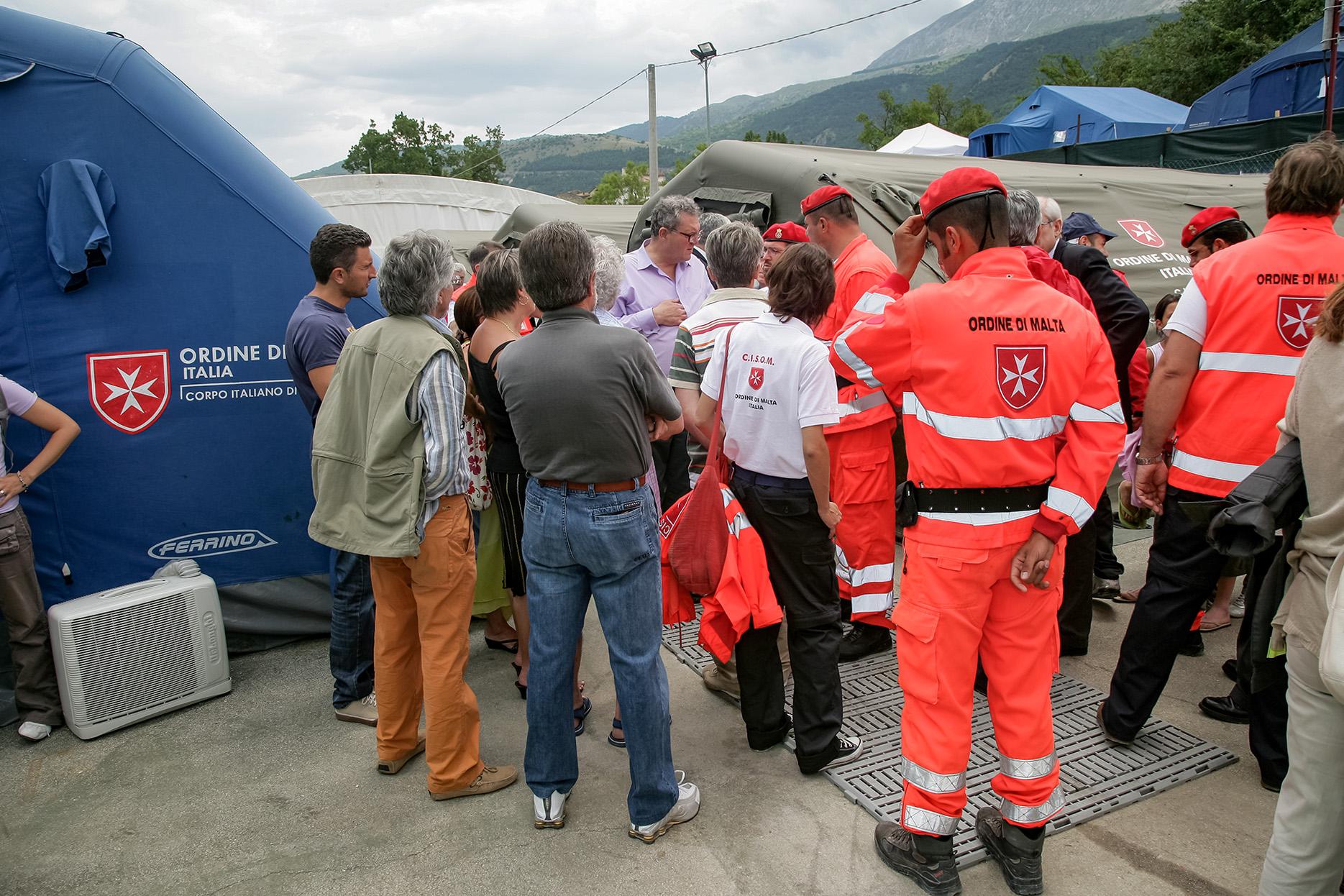The Order’s Italian Ambulance Corps is assisting 600 displaced people in two tent camps
On 20 June last, the Order of Malta’s Grand Master Fra’ Matthew Festing, in his second visit after that of 23 April, spent another day with the homeless victims in the two tent camps of S. Felice d’Ocre and Poggio di Roio set up by the Order’s Italian Ambulance Corps (CISOM) near l’Aquila. After meeting the Civil Defence Chief Guido Bertolaso at the Coordination Centre, he visited some damaged churches in the historic centre of l’Aquila accompanied by the Head of the Department of Fire and Rescue Services Francesco Paolo Tronca.
Arriving at 11.30 in San Felice d’Ocre, where 220 people are currently accommodated, the Grand Master encountered the quake victims and inspected the humanitarian operations organized by the Order’s volunteers under the coordination of the Italian Civil Defence. After lunch with the camp residents, Fra’ Matthew Festing moved to Poggio di Roio, where 370 displaced people still remain out of the initial 700. After an inspection of the tent camps, at 4 p.m. he attended mass. It was in this camp that the ancient wooden statue of the Madonna of Poggio di Roio was salvaged, blessed by Pope Benedict XVI during his visit at the end of April. The Grand Master returned to Rome in the evening.
At the request of the Civil Defence, the CISOM will remain responsible for the two camps during the entire state of emergency.
Also on 20 June , two teams from the Malteser Hilfdienst and Malteser Hospitaldienst, the Order of Malta’s Ambulance Corps in Germany and Austria, started work in the Poggio di Roio camp. This operation, that will extend the cooperation between the Order’s Ambulance Corps in Europe, starts with some volunteers working for ten days alongside the Italians.
The first contribution
It was early in the morning of 6 April, that 67 volunteers the Order of Malta’s Italian Ambulance Corps – doctors, nurses and specialised helpers – arrived in the areas affected by the earthquake. With the reopening of the local health centres, the two advanced medical stations set up in the camps, which performed over 150 operations immediately after the quake, have now been replaced by first-aid posts with ambulance service.













